Try These Seven Tricks to Improve Your Networking Skills
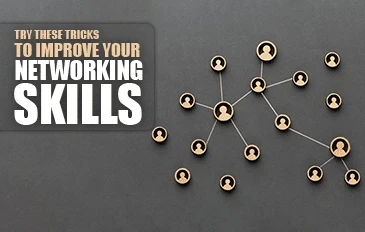
Try These Seven Tricks to Improve Your Networking Skills
Networking is one of the most important aspects of a successful career, but it can also be one of the most intimidating. For most people, the thought of walking into a room full of strangers and trying to make connections is overwhelming. But, like anything else, it can be learned and improved on with practice. These tricks will help you get started.
Do Your Research in Advance
The best way to feel confident is to know what you’re hoping to achieve. Before attending a networking event, take some time to learn about the people who’ll be in attendance—read their biographies, any articles they’ve written, and some information about their business, and consider what exactly you can offer them. This research will give you a better sense of who you might want to talk to and what topics might spark their interest. It’ll also help you come up with conversation starters, focus on your goals for the event, and make a good impression. Review your elevator pitch so you’re prepared to introduce yourself confidently.
Arrive Early
Environmental cues can greatly impact our mood and behavior, so it’s important to be mindful of the messages you send with your body language when you’re networking. Arriving early at an event is a great way to show interest and enthusiasm. It gives you the opportunity to scope out the room, chat with other attendees before the event gets too crowded, and get a feel for the atmosphere; it can also help you avoid the awkwardness of being one of the last people to arrive.
Be an Active Listener
One of the most effective networking skills is active listening. Listen attentively to what the other person is saying. Show genuine interest in their work and experiences. The best way to build rapport with someone is to ask them questions about their job and hobbies: not only does this make conversations more interesting, it also shows the other person that you’d like to get to know them better. People are more likely to remember you if they feel like you truly listened to them and invested in the conversation. Take the initiative and be friendly and engaging. Smile, make eye contact and exude positive energy.
Dress for Success
You never get a second chance to make a first impression, so it’s important to dress for the occasion. Choose an outfit that’s both stylish and professional, and that makes you feel confident. It’s also important to pay attention to your grooming, so ensure your hair is styled. If you wear makeup, make sure it’s minimal; you want people to focus on your conversation, not your appearance. Finally, avoid wearing strong fragrances, as some people may be allergic or dislike the smell. You’ll feel more confident when you look your best and can make a better impression on potential contacts.
Bring Plenty of Business Cards
Even if you aren’t seeking new business contacts, always bring business cards so people can be reminded of your conversation after they leave the event. And don’t forget to personalize them with something unique about yourself. Business cards are an excellent way to leave a lasting impression and can be a valuable tool for developing meaningful engineering relationships. They’re also an easy way to exchange contact information and can help people remember who you are and what you do. So before heading out to that event, make sure you have plenty of business cards with you. That way, you’ll be prepared to make new contacts and easily hand out your information. By staying connected with the people you meet, you can build strong relationships that can lead to your career advancement.
Start Small
Another effective approach to improving your skills is to start small. Rather than trying to approach everyone in the room at once, start by talking to one or two people who interest you. This will give you a chance to practice your conversation starters and help you feel more comfortable talking to new people. It’ll also make networking less overwhelming and allow you to focus on building relationships rather than collecting contacts. Once you’ve mastered the art of conversation starters, you can start approaching larger groups of people with confidence.
Follow-Up After the Event
After attending a networking event, it’s important to follow up with the people you meet. You can do this by sending a quick email or LinkedIn message. Mention something you talked about in conversation and invite them to keep in touch. Following up shows that you’re interested in developing a relationship, which may even lead to a future opportunity.
Conclusion
If you’re not a natural networker, never fear. These tips and tricks can help anyone to become a skilled networker. The most important thing is to get started and to keep working at it. The more practice you have, the more confident you’ll become. And who knows? Over time, you might even come to enjoy networking. So go out there and start meeting people—you never know who you’ll meet, or where your next opportunity will come from.
Michael DeSafey is a leading executive recruiter for professionals in the construction, engineering, and environmental industries. He is currently the President of Webuild Staffing: www.webuildstaffing.com. To learn more about Michael, or to follow his blog, please visit www.michaeldesafey.com.
Personal Power Can Help You Find Fulfillment in Your Career: Learn the Seven P’s

Personal Power Can Help You Find Fulfillment in Your Career: Learn the Seven P’s
No matter what field you’re in, or what stage you’re at in your career, developing a sense of personal power can help you find fulfillment. Personal power is the ability to take control of your life and create the outcomes you want.
It’s about having agency, choice, and confidence in your ability to make things happen. The good news is that personal power is something that anyone can cultivate.
Purpose
Individuals with a clear purpose are able to stay focused and motivated, even when the going gets tough. They know what they want to achieve and why it’s important. Second, personal power requires skill; those who can use their skills effectively can often accomplish great things. And finally, personal power also requires relationships. Those who have strong relationships with others can often achieve more than those without.
Plan
Personal power can help you find fulfillment in your career plan. Career advancement can bring happiness and a sense of accomplishment. But it’s not just about finding the right job; it’s about using your power to create a career plan that works for you. Take the time to consider what you want to do with your life and what will make you happy. If you’re unsure, look at different options and try different things. There are many fields in which you can use your power to make a difference, including construction, engineering, and environmental work. Find something that speaks to you, and then go after it with everything you’ve got. Fulfillment comes from using your power to create the life you want. So go out there and make it happen.
Passion
Environmental science is the study of environmental issues, including global warming, ozone depletion, acid rain, and water and air pollution. This field evolves constantly as new issues emerge and new technologies are developed to address them. As an environmental scientist, you must be passionate about your work to stay abreast of the latest developments and make a difference in the world. If you are not passionate about environmental issues, you will likely find yourself quickly becoming bored or frustrated with the field. However, if you’re truly passionate about protecting the environment, you will find great fulfillment in a career as an environmental scientist.
Practice
When we take the time to hone our skills and develop our talents, we open up a world of possibility. We become better equipped to deal with challenges and seize opportunities as they arise. We find fulfillment in our work and satisfaction in our accomplishments. So, whatever you want to achieve in your career, don’t be afraid to put in the hard work required. You might not see results overnight, but with dedication and perseverance, you’ll eventually reach your goal—and when you do, the sense of achievement will be much sweeter. Just remember, if you want to find success and fulfillment in your career, start by tapping into your power. Then practice what you’ve learned until it becomes second nature. You’ll be amazed at what you can achieve with time and effort.
Presence
Engineering and construction are industries that require a great deal of personal power. After all, these are fields that require regularly working with heavy machinery, large tools, and sometimes dangerous materials. As a result, it is essential to be present and focused while you work. Engineering and construction are also fields in which a lot can go wrong if you’re not paying attention. One moment of distraction can result in an accident or injury. That’s why it’s so important to be present in the moment and focus on the task at hand. Once you’ve learned to do this, you’ll find that you can work more efficiently and precisely. In addition, being present and focused on your work will also help you find more fulfillment in your career.
Pain
Construction work can be grueling. Long hours spent working in the hot sun, lifting heavy materials, and dealing with challenging customers can make the job feel more like a punishment than a career. But for those who can push through the pain, construction work can also be immensely satisfying. The sense of pride that comes from completing a challenging project, the satisfaction of knowing that you helped to build something that will be used and enjoyed by others, and the camaraderie that develops among coworkers can make construction work a very fulfilling career. If you’re willing to put in the hard work, construction work can be a great way to find career fulfillment.
Positivity
Career advancement can seem difficult, but it’s often made easier simply by having a positive outlook. Positivity can open doors that might otherwise remain closed and help you to find fulfillment in your work. The first step is to identify your career goals. Once you know what you want to achieve, you can take steps to reach those goals. It’s also important to build strong relationships with coworkers and superiors. These relationships can provide valuable networking opportunities and help to create a mutually beneficial work environment. Finally, always remember to stay positive and open-minded in your career journey. These principles will help you overcome challenges and find lasting success.
Conclusion
If you want fulfillment in your career, start by looking inward. Consider what personal power means to you and how you can use it to achieve your goals. Once you have a clear idea of what you want, focus on the seven P’s of success, and keep in mind that proper preparation prevents poor performance. Implement these principles in your life and career and watch as the pieces fall into place.
Michael DeSafey is a leading executive recruiter for professionals in the construction, engineering, and environmental industries. He is currently the President of Webuild Staffing: www.webuildstaffing.com. To learn more about Michael, or to follow his blog, please visit www.michaeldesafey.com.
So You Had a Career Failure. Now What?

So You Had a Career Failure. Now What?
Do you remember the last time you experienced career failure, and how it made you feel? You probably felt discouraged and lost some self-esteem.
However, failure shouldn’t be a determinant of your self-worth or self-acceptance. Instead, you should view failure as a stepping-stone to success and a sign that you should dare to take risks in life. It might also signify that you’re a step closer to accomplishing your goals.
Can Failure Lead You to Success?
So you’ve failed, and you feel discouraged. But have you ever encountered the phrase “Failing to success“?
This phrase implies that it’s possible to use your failure to develop the traits and skills required to help you succeed. However, to accomplish your professional goals after experiencing failure, you must first identify the variables that led to this failure.
Lan Nguyen Chaplin talks about how you can use career failure to rebuild your confidence and take back control of your professional journey. Here are some ways that failing can ultimately help you succeed:
- It allows you to develop resilience. If you were fired from a job you love, you could choose to wallow in misery, or you could stay focused and cheerful. Failing in your career teaches you resilience, which is crucial because it allows you to quickly bounce back from setbacks. Resilience also gives you a positive outlook on life and the future.
- It helps you develop courage. Failing is a sign that you aren’t afraid to try new things. Careers such as engineering require individuals who can brainstorm new ideas and try out different problem-solving approaches.
- It provides you with experience. Hiring managers look for employees who have experience. Every failure offers knowledge you can use in your career journey. This knowledge gives you the upper hand in organizations, because it helps you make yourself a valuable asset to a company.
- It removes fear. Are you procrastinating and reluctant to try new things? These are signs of anxiety, and they are detrimental to your success. When you learn to recover from failure, you become open to trying new ideas in the future.
- It gives you an opportunity to share your story. Experiencing failure, and later recovering from it, gives you a valuable experience you can later share with others, which can in turn motivate them to take risks by trying out new things. It also gives you the opportunity to embrace vulnerability while strengthening your bond with other people.
How Do You Cope with Failure?
How do you move forward after experiencing career failure?
1. Don’t let it break you.
You will experience several setbacks in your career, but you shouldn’t let them define your destiny. For example, if you fail in a construction project, you should consider the positive lessons rather than dwelling on the failures. Your mistakes shouldn’t keep you from accomplishing your desired goals.
2. Learn to accept the situation.
Don’t be hard on yourself and curse the universe for your failures—instead, accept them and try to figure out how to move on from them. Acceptance means putting aside negative thoughts while taking constructive criticism on board.
Acceptance helps you avoid career regrets and pushes you to stop dwelling on rejection. Learn to accept responsibility for your failures. This promotes development, which leads to career accomplishments.
3. Understand that failure leads to success.
All successful men and women have a story about failure. However, all these successful people refused to let failure stand in the way of their success, and instead set out to take risks in life by trying new things.
Rather than viewing failure as a sign of defeat, consider it inspiration to do better in your career. Reading about people’s success stories can help you believe in yourself and move forward with confidence.
4. Identify the cause.
If you encounter failure in your environmental career, you should seek to identify the cause. This will help you make the right modifications to your future projects.
5. Keep the faith.
It’s common to feel defeated when you experience failure in your career. However, you will need to learn that challenges are an essential part of achieving your desired goals. Therefore, after experiencing failure, you should work towards regaining control of your rational side, and then proceed to accomplish your goals with confidence.
Conclusion
Although experiencing career failure is overwhelming, you should find a way to overcome the failure and move on with your life. You should also avoid criticizing yourself to much, since it is impossible to avoid failure in life.
Michael DeSafey is a leading executive recruiter for professionals in the construction, engineering, and environmental industries. He is currently the President of Webuild Staffing: www.webuildstaffing.com. To learn more about Michael, or to follow his blog, please visit www.michaeldesafey.com.
Category: Career Training, Construction, Engineering, Environmental
Efficiency and Productivity on a Construction Job Site
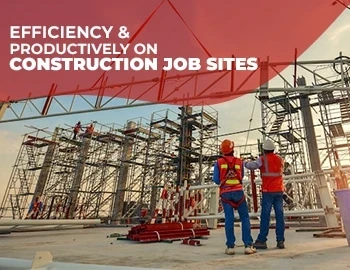
Efficiency and Productivity on a Construction Job Site
Keeping a jobsite running efficiently and cost-effectively is not always an easy task. One common obstacle is the current shortage of skilled labor in the construction industry, along with an increase in the cost of construction materials. It can be challenging for construction contractors and project managers to complete jobs on time and on budget and to keep customers satisfied. To achieve this, it is essential to equip yourself with the best tools to complete construction projects in the most cost-efficient and productive way possible. Here are a few factors to consider to increase efficiency and productivity on construction sites
- Time management
One way to increase efficiency on construction jobsites is effective time management. Scheduling workers to make sure someone is available to work at any given time to get a project completed in a timely manner can be a challenge. And once the workers are there, you will also need supervisors on site who can lead a team and motivate everyone to work productively.
- Vetting Subcontractors
Construction professionals must be very cautious when hiring subcontractors. Project managers can be held legally liable for any faulty workmanship on a job. All subcontractors hired for a project should be thoroughly vetted, including verifying all references, inspecting documentation such as licenses, employee records, or insurance coverage. Always review the subcontractor’s business model and financial solvency.
- Maintaining Insurance Requirements
Without the proper insurance, construction contractors and project managers are legally responsible if things go wrong on a jobsite. Workers can be injured, jobs can be completed that are not up to quality standards, environmental contamination can occur while completing a project, among other possibilities. All these issues can cause liability issues for contractors. A periodic review of insurance coverage is necessary to ensure projects run efficiently and smoothly and that all parties involved are properly protected.
- Keep Lines of Communication Open
Effective communication is important in letting employees know the expectations of their manager regarding the time scope of completing a project, the materials needed, and in coordinating the efforts of all team members. Without keeping the lines of communication open, a project can quickly get out of control. Everyone must know and understand the tasks needed to complete a job on time and with quality workmanship. Without effective communication, there can be delays that prove costly in time and money.
- Employee motivation
Construction employees expect to be valued and treated fairly, which includes providing a safe working environment, listening to any employee concerns that may arise, and working to find a solution to the problem. When employees feel valued, they will be motivated to perform to the best of their ability. The more productive the employees are, the faster the job can be completed, which will help get the project completed on time and on budget.
Construction contractors have a lot to think about in day-to-day operations, including trying to save on costs. Understanding industry-specific risks and learning how to mitigate them are key to achieve efficiency and productivity on construction jobsites.
Michael DeSafey is a leading executive recruiter for professionals in the construction, engineering and environmental industries. He is currently the President of Webuild Staffing www.webuildstaffing.com . To learn more about Michael or to follow his blog please visit www.michaeldesafey.com
Top 20 Colleges Offering the Best Construction Management Programs

Top 20 Colleges Offering the Best Construction Management Programs
If you are looking to grow your construction business and maintain your core values as you expand your brand, recruiting recent graduates from a top-notch construction management program is makes good sense. New graduates bring to the table their knowledge of the most recent trends and advances in construction science, which can be combined with the hands-on experience of your more senior project managers to increase efficiency and improve your bottom line. As newcomers to the industry, they can be mentored and trained to emulate your core principles and unique business methodology.
Last year, over a hundred colleges across the nation awarded nearly 3,500 construction management degrees: with a 10% growth in the industry, these graduates are in high demand. Average salaries for those entering the job market hovered around $61,000, but graduates from the nation’s top construction management programs can earn upwards of $70,000. If your company is in the market for a new hire, here’s a look at some of the best construction management programs in the United States.
Ranking the Top Five
College Factual, a data collection storehouse providing degree, program, and career information to students, faculty, and institutions, created a ranking of colleges and universities that offered bachelor’s degrees in construction management. Factors in their analysis included percentage of degree completion, student body academic caliber, educational resources, and reported post-collegiate earnings. They also considered factors like number of students applying to the program, accreditation by national accrediting bodies, and percentage of student body enrolled in construction management, as well as the overall quality of the school and student satisfaction. Here is their pick of the top five schools in the nation:
- Arizona State University in Tempe offers bachelor’s, master’s, and doctorates in construction management. In 2018, their 81 bachelor’s graduates accepted national and international positions at an average salary of $70,000. ASU is ranked the #1 college in Arizona and #3 on College Factual’s list of Best Value Colleges for Construction Management.
- Wentworth Institute of Technology in Boston, MA, is a small private school that offers degrees in construction management at the bachelor’s and master’s level. In 2018, this small school awarded 98 bachelor’s degrees and 22 master’s degrees. Recent graduates report starting salaries at just under $78,000. Wentworth Institute is ranked as the #1 Construction Management Colleges for Non-Traditional Students and the #2 School for Veterans.
- Virginia Tech in Blacksburg, VA, is a large school with a relatively small construction management program. It offers both a bachelor’s and a master’s degree and awarded 76 bachelor’s degrees in 2018 —a 38% growth rate in this up-and-coming program. Their graduates report starting salaries averaging $64,000. They are ranked as the #1 college in Virginia and #3 for Best Construction Management Colleges for Non-Traditional Students.
- University of Oklahoma Norman Campus is a large public school offering bachelor’s and master’s degrees in construction management. In 2018, they awarded 20 bachelor’s degrees and 12 master’s degrees. New graduate salaries were not available.
- Louisiana State University and Agricultural & Mechanical College in Baton Rouge, LA, is a large urban college offering both bachelor’s and master’s degrees in construction management. In 2018, they handed out 161 bachelor’s degrees to graduates who reported an average starting salary of $65,000. This university awarded more construction management degrees than any other program in the country and was rated #6 in Best Construction Management Colleges for Non-Traditional Students.
The Runners-Up
Not everyone can be at the top! The following colleges and universities are also highly ranked and well-regarded for their construction management programs:
- Clemson University in Clemson, SC
- Brigham-Young University in Provo, UT
- Milwaukee School of Engineering in Milwaukee, WI
- John Brown University in Siloam Springs, AZ
- Washington State University in Pullman, WA
- Lawrence Technological University in Southfield. MI
- Appalachian State University in Boone, NC
- Norwich University in Northfield, VT
- Boise State University in Boise, ID
- North Dakota State University in Fargo, ND
- Drexel University in Philadelphia, PA
- The University of Northern Iowa in Cedar Falls, IA
- Pittsburg State University in Pittsburg, KS
- The University of Alaska at Anchorage, AK
- The University of Texas at Tyler, TX
Michael DeSafey is a leading executive recruiter for professionals in the construction, engineering and environmental industries. He is currently the President of Webuild Staffing www.webuildstaffing.com . To learn more about Michael or to follow his blog please visit www.michaeldesafey.com
Category: Career Training, Construction, Jobs
Top 10 US Universities Known For Their Construction Management Programs
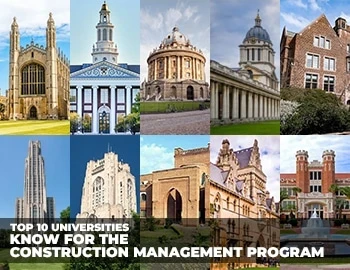
Top 10 US Universities Known For Their Construction Management Programs
If you are looking to obtain a degree in a growing field, majoring in construction management would be a great decision. Construction management careers are expected to grow by 11.1% between 2016 and 2026, with a projected 448,600 jobs made available during this time frame. At $62,200 on average, the starting salary for a construction management career in the United States is attractive as well.
Ultimately, obtaining a degree in construction management can open many doors. Graduates can venture into many sectors, from drafter to electrician, to architect, to property or construction manager. The opportunities are nearly endless, and the job growth looks promising within the industry.
In 2019, approximately 3,375 construction management degrees were awarded to students around the United States, in many concentration areas that apply to a wide variety of positions. If you think that a construction management degree might be the right move for your career, see below the top 10 construction management programs offered in the United States.
California State University in Sacramento is a public university that offers a 132-hour cooperative construction management program, meaning you will gain real work experience before graduating. Tuition: $9,127.
Arizona State University in Tempe is a public research institution that offers construction management programs with four emphasis options: commercial building, specialty construction, concrete industry, and residential construction. Tuition: $13,007.
Purdue University is a public research institution in West Lafayette, Indiana. Its construction management program places a heavy emphasis on the importance of work experience and the degree’s business side. Tuition: $11,693.
Central Connecticut State University is a public university is based in New Britain, Connecticut. Its construction management program is a blend of field operations and advanced mathematics. Tuition: $14,852.
New York University is a research university located in the heart of New York City. With this program, you will have the opportunity to gain field experience at actual construction plots in the city. Tuition: $35,147.
Minnesota State University in Mankato offers both online and on-campus course options. Its construction management program provides every student with the opportunity to partake in a construction field internship before graduation. Tuition: $13,812.
Brigham Young University in Provo provides a construction management program that blends field experience with construction-related coursework. Tuition: $12,864.
Wentworth Institute of Technology is a trade school that offers 17 different bachelor’s degrees, all rooted in the STEM fields. This construction management program provides hands-on construction experience from day one. Tuition: $36,579.
Louisiana State University and Agricultural & Mechanical College is based in Baton Rouge, Louisiana. Its construction management program is heavily focused on the business side of the degree, offering core classes based on analytics, geometry, and finance. Tuition: $15,095.
California State University in East Bay offers an excellent construction management program that focuses heavily on the engineering aspect of construction management. Tuition: $10,758.
All these schools present a great construction management program with its own set of pros and cons. Visit each school’s website to learn more about their offer and to discover which school would best suit your career goals.
Michael DeSafey is a leading executive recruiter for professionals in the construction, engineering and environmental industries. He is currently the President of Webuild Staffing www.webuildstaffing.com . To learn more about Michael or to follow his blog please visit www.michaeldesafey.com
Category: Career Training, Construction, Recruiting
Tips for Becoming a Promotable Employee
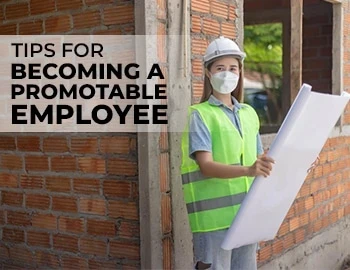
Tips for Becoming a Promotable Employee
Very few people realize that construction jobs offer great opportunities to advance. Here are some tips and strategies to further your career and get promoted in the construction, engineering, and environmental industries .
Start Early and Work Late
Show your superiors that you are motivated. Take on extra tasks and responsibilities. Get involved and join a committee. If you are consistently doing more than what they ask of you, you will make an impression and become indispensable.
Be a Team Player
Establish a good collaboration with electricians, heavy equipment operators, and drywall installers. Create balance and solutions for everyone you work with.
Regularly Get Feedback from Managers
Know your superiors’ expectations and make sure you are going above and beyond the standard. Set regular milestones for yourself. Ask your boss what they are looking for in a candidate when filling a supervisor or manager position. Get regular reviews about your performance and ask how you can improve your work ethics.
Show That You’re a Problem Solver
Imagine your team is a week behind schedule, an order of supplies never arrived, and you must prove to your boss that you can overcome these obstacles and provide practical solutions. Staying calm and level-headed in stressful situations is a good indicator you’d make an excellent team lead or manager.
Take the Initiative
Ask your boss if you can complete some cross-training or if they have a workshop or training module in mind. Check if your project manager needs help writing the schedule, taking inventory, or calling prospects. Show your manager a way to improve efficiency and productivity in the business. Take part in company meetings. Discuss progress with upper-level executives. Get a Certified Construction Manager Certificate. That shows you are serious about getting a promotion because you took the time to better yourself and enhance your skillset.
Focus on Safety Regulations
Show your boss you abide by all safety regulations and that doing things the right way is a priority for you. Always be on budget and on time —even better, aim to finish projects under budget and early! You will be judged not only by the quality of the work itself, but by how you handle obstacles surrounding the projects.
Promote Your Company
Refer your company to new clients and try to expand the business. Taking the initiative and advocating for the company are likely to put you in line for a promotion. Find prospects and start calling people. If you can get relevant work lined up for the project manager without it being required of you, it can only look good. Word of mouth is a great way to get new clients.
Research the Company
If you haven’t already started researching the company for which you work, learn about the business values, mission statement and company culture. Start networking on sites like LinkedIn, where you can follow the higher-level executives and CEO. These links will help you understand more about your business and how it operates under their leadership. Find out how another manager or supervisor got promoted working in the field and ask if they will mentor you and help you rise to the position.
Michael DeSafey is a leading executive recruiter for professionals in the construction, engineering and environmental industries. He is currently the President of Webuild Staffing www.webuildstaffing.com . To learn more about Michael or to follow his blog please visit www.michaeldesafey.com
Surprising Facts About the Top 20 US Universities Known for Their Engineering Programs

Surprising Facts About the Top 20 US Universities Known for Their Engineering Programs
We live in a day and age where new technologies and innovation have become commonplace, and where engineering has emerged as a very much “in demand” career choice. With many students turning to this field of studies, here are 20 universities in the US known for their engineering program, and facts you may not know about each of them.
CARNEGIE MELLON UNIVERSITY (Pittsburgh, PA)
With stringent acceptance criteria, less than 25% of prospective applicants will be allowed to attend. Three of the most popular programs on campus are mechanical, electrical, and chemical engineering. Carnegie Mellon was rated the 27th university worldwide in 2018 in the Times Higher Education ranking.
STANFORD UNIVERSITY (Stanford, CA)
One of the hardest universities to be accepted into, with less than 5% (1 in 20) applicants admitted every year. However, this admissions process has produced some of the best minds: since 1952, over 54 alumni, faculty, and staff have won a Nobel Prize. It will be celebrating its 130th birthday in 2021, having first opened its doors on October 1st,1891, to a class of 555 students.
MONTANA TECH OF THE UNIVERSITY OF MONTANA (Butte, Montana)
If a career in mining is what you’re after, look no further than Montana Tech. Students from this school can expect to be offered salaries upward of $80,000 upon graduation, and with a whopping 98% placement rate in the mining industry, this is within reach of every graduate. All this comparatively affordably, too, with an average net cost of about $11,000 per year.
WEST VIRGINIA UNIVERSITY (Morgantown, West Virginia)
The Benjamin M. Statler College of Engineering and Mineral Resources is another great school if you’re looking for a career in the mining industry, although geared more towards energy. The petroleum and natural gas engineering program is one of only three colleges in the nation recognized by the ABET (Accreditation Board for Engineering and Technology). Located in the Appalachian Mountains, it has seen one of the largest booms in the energy field, with the extraction of natural gas from Marcellus Shale becoming more and more prevalent. Its student population is one of the smartest, with an average high school GPA of 3.45.
MASSACHUSETTS INSTITUTE OF TECHNOLOGY (Cambridge, Massachusetts)
Another difficult school to be get into —only 6.7% of applicants are admitted every year. This is reflected in a very intimate learning environment, with a student-to-faculty ratio of 3:1. It doesn’t stop the program from being widely renowned as the best in its field: the US News & World Report has ranked it at #1 since 1983, with 10 of its individual sub-programs ranked from #1 to #7 in the nation.
TEXAS TECH UNIVERSITY (Lubbock, Texas)
This university located in the Lone Star State is the first public university to require its engineering majors to study abroad. It offers individual programs such as chemical engineering, civil engineering, environmental engineering, construction engineering, mechanical engineering, electrical and computer engineering, petroleum engineering, and industrial, systems, and manufacturing engineering. Bachelors’ and masters’ degrees are the most widely offered degree programs here.
NEW MEXICO STATE UNIVERSITY (Las Cruces, New Mexico)
New Mexico State University has the largest engineering college in the state, with 13 accredited programs and over 2,000 undergraduate and graduate students currently enrolled. It offers great value: at an average yearly cost of $10,300, it has been ranked as the 12th best value school amongst a pool of over 500 institutions in the US. Additionally, it is easier to get in than some other schools, with an average yearly admission rate of 64%.
UNIVERSITY OF CALIFORNIA, BERKELEY (Berkeley, California)
Another California school, UC Berkeley is more moderately selective than others on this list, with an average acceptance rate of 16.8%. It offers a smaller class setting, with about 19 students per faculty member, allowing for good research opportunities. The most popular individual programs amongst students are chemical, civil, electrical, and mechanical engineering.
UNIVERSITY OF MICHIGAN (Ann Arbor, Michigan)
This school is full of some of the brightest young minds in the country, with about a quarter of admitted freshmen boasting a GPA of 4.0 or above. In addition, admitted students typically rank within the top 5% of ACT scores in the United States. Some of the most popular programs offered in the engineering department include, but are not limited to, aeronautical, astronomical, biomedical, chemical, electrical, industrial, and mechanical engineering programs.
IOWA STATE UNIVERSITY (Ames, Iowa)
Engineering is one of the most popular programs here, with almost a quarter of the 36,000 students choosing an engineering-based major. This might be a product of Iowa State’s long history with engineering studies, as it was one of the first majors featured when the university opened its doors in 1858, when no other university in the US was offering a master’s degree in engineering.
CALIFORNIA INSTITUTE OF TECHNOLOGY (Pasadena, California)
In this intimate school, a student-to-faculty ratio of 3:1 allows for unprecedented research opportunities for students. However, Caltech is also one of the smallest schools in the nation, with fewer than 1,000 undergraduate students. This is reflected in a strict selection process, with 6.4% of applicants accepted and successful candidates typically within the top 1% of ACT/SAT scores.
TENNESSEE TECHNOLOGICAL UNIVERSITY (Cookeville, Tennessee)
Graduates of this school can expect solid career options and an average salary of 60k per year upon graduation. Additionally, the school has a large research budget, giving students opportunities to get ahead in the field. Engineering is one of the most popular choices of major amongst incoming freshmen.
TUSKEGEE UNIVERSITY (Tuskegee, Alabama)
Historically, Tuskegee University was the first all-black college to offer an aerospace engineering degree. Of the student body, roughly 35% choose a STEM major. The school offers aerospace, chemical, electrical and computer, materials science, and mechanical engineering in its College of Engineering.
CORNELL UNIVERSITY (Ithaca, New York)
An Ivy League school, Cornell has arguably the strongest engineering program among them. The most popular programs are agricultural, chemical, mechanical, and information engineering. As with all Ivy League schools, the selection process is extremely competitive; only about 1 in 9 applicants is accepted, with an average SAT score within the top 7%.
LAMAR UNIVERSITY (Beaumont, Texas)
If a high paying job is your primary motivation for becoming an engineer, Lamar is one of the best places for you to go. A degree from this undergraduate engineering college could lead you to an average yearly salary of $75,000 or more. Additionally, the co-op program allows students to work in paid internships while still in college, combining the benefits of earning a bit of money and acquiring valuable experience in the field. This contributes to its affordability, with an average yearly cost of about $13,800 and over 4 million dollars’ worth of need and merit-based scholarships available to students.
UNIVERSITY OF ARKANSAS (Fayetteville, Arkansas)
Home of the Razorbacks, the University of Arkansas has one of the most diverse engineering departments, with 17 different accredited programs. It is another school with a large research budget that pairs on-campus research with paid internships. It currently offers prospective students the chance to combine a degree in engineering or computer science with a degree in German, all in five short years, including spending a year studying and interning in Germany. If this doesn’t broaden opportunities for students as they enter the workforce, we don’t know what will.
OREGON INSTITUTE OF TECHNOLOGY (Klamath Falls, Oregon)
Another school that focuses heavily on STEM majors, with over half of the student population pursuing degrees in STEM-related fields. Graduating from this school should give you a good chance to acquire a job after college, as about 90% of students find employment within six months of receiving their degree. Multiple programs are on offer, including civil engineering, computer systems engineering technology, electrical engineering, and manufacturing and mechanical engineering.
GEORGIA INSTITUTE OF TECHNOLOGY (Atlanta, Georgia)
The Georgia Institute of Technology (also known as Georgia Tech) offers a wide array of engineering programs, from aerospace engineering to nuclear and radiological engineering, along with mechanical, materials science, industrial and systems, electrical and computer, civil and environmental, chemical and bimolecular, and biomedical engineering. If you are looking to further your current engineering degree, they also offer 23 different master’s degree programs, and 18 doctoral degrees. Applicants are accepted at an average rate of 23%.
NORTHWESTERN UNIVERSITY (Evanston, Illinois)
At Northwestern, there are plenty of research opportunities, with over 24 research institutes on campus focusing on biotechnology, nanotechnology, service and infrastructure technologies, and information technology. According to US News, it is the 19th best engineering school overall in the country, #2 (tied) in Materials engineering, #4 in Industrial, Manufacturing, and Systems engineering, as #10 in Civil engineering. It is not the easiest to get into, however, with an average acceptance rate of 8%.
JOHNS HOPKINS UNIVERSITY (Baltimore, Maryland)
With a slightly higher acceptance rate than other engineering colleges (11% on average), Johns Hopkins University offers a total of 21 different program areas for those looking to enter the career field of engineering. Programs offered include civil engineering, engineering management, space systems engineering, and applied biomedical engineering, to name a few. While expensive, Johns Hopkins met 100% of the financial aid needs of those who applied for it during the 2019-2020 school year.
Why Engineers Are Crucial
In addition to innovation being so commonplace today, technological items are getting increasingly complex, yet at the same time much more user-friendly. There are also ever-changing government regulations on various products, which will require some of the objects we use today to be scrapped and re-designed. To meet these demands, society must produce engineers capable of designing products in a way that meet the needs of the government and consumers, without compromising the safety of their users.
Michael DeSafey is a leading executive recruiter for professionals in the construction, engineering and environmental industries. He is currently the President of Webuild Staffing www.webuildstaffing.com . To learn more about Michael or to follow his blog please visit www.michaeldesafey.com
Category: Career Training, Engineering, Interview And Job Search Tips
The Much-Needed Career Advice Nobody Gave You

The Much-Needed Career Advice Nobody Gave You
Though you must have taken a variety of classes in high school and engineering college, in all likelihood, nothing was particularly focused on providing career advice. It can be a challenging experience for a novice engineer to navigate the workplace and try to learn everything at the same time.
Here are strategies that will get you on the right path towards your career goals.
Gain Experience Across Disciplines
When you start working as an engineer, as exciting as securing your first job may be, do not commit to one discipline. Keep an open mind, cross-collaborate across projects, and get a feel for new fields and challenges from the outset. Try as many aspects of engineering work as possible to build your experience in all disciplines. Don’t wait for later to seek out a variety of work; start as you mean to go on and as soon as you have a chance, explore structural design, geotechnical engineering, land surveying, or residential and commercial site design. This isn’t to say you should not pursue one area that appeals most to you to specialize and start taking leadership roles. But having across-the-board experience will help you hone your skills, excel in your work, and become highly noticeable.
Find a Mentor
A good mentor will lift you up, but a bad one will bring you down. A mentor is a good listener and a problem-solver. They are not there to hold your hand, but you should be able to ask them open-ended and thoughtful questions. A mentor guides you to think about the bigger picture, prods you to get out of your comfort zone and take up a challenge. They can be your boss, your colleague, or another professional in your field.
Work Smartly and Efficiently
Be efficient in your work and keep up with your deadlines. Do not procrastinate and let your work pile up until the last minute. This also means you should ask for help when needed. Spending hours trying to solve problems on your own will lead to loss of valuable time. Learn to be a team player and reach out without hesitation. Collaboration and delegation are key skills that will translate to more responsibilities and leadership roles in the future. To develop your own skillset, be available to learn on the job and attend workshops to improve and acquire skills to achieve proficiency. Volunteer for company outreach programs for continued networking. Also remember that every job comes with its paperwork; be as savvy as you can with software like Word and Excel, so you are not struggling to keep up.
Become Financially Literate and Responsible
Counter-intuitive as it may seem, begin planning your retirement as soon as your start your first job. Sign up with a benefits plan and save at least 7% in your retirement account. Slowly increase your contributions up to 15% in the following years. And then save, save, save! It can be hard to think about saving money when you are young and only just starting out, but it is essential. Learn to budget and live within your means —this means spending less than you earn!
These strategies will assist in building lifelong foundations for your professional life. They will make you confident in the decisions you make on the daily basis in your career and for the future. If you are looking for exciting opportunities in engineering, environmental or construction work, please contact us.
Michael DeSafey is a leading executive recruiter for professionals in the construction, engineering and environmental industries. He is currently the President of Webuild Staffing www.webuildstaffing.com . To learn more about Michael or to follow his blog please visit www.michaeldesafey.com
Top Universities Offering Environmental Science Degrees

Top Universities Offering Environmental Science Degree
The Environmental Science industry is rapidly growing to provide a clear understanding of the various impacts humans and other factors have on the world and the effect they will have on future possibilities.
As the industry is growing, more universities worldwide are adapting their curriculum to offer potential students the opportunity to dive into this industry and gain the skills to create a sustainable future. This article introduces a few of the top environmental programs at universities in the United States to give prospective students a clearer understanding of the various concentrations they may want to study and where some of top universities are located.
Brown University (Providence, RI) offers two Environmental Science programs – Earth, Environmental & Planetary Sciences and Ecology & Evolutionary Biology. The DEEPS programs research different issues effecting Earth and planets, while The DEEB program focuses on understanding different biological systems and how different organisms affect them.
In the Earth, Environmental & Planetary Sciences program, students can focus on Geophysics, Climate & Environment, Planetary Perspective, Environmental Science and Geochemistry.
Tuition: $55,466
Columbia University’s (New York, NY) Department of Earth & Environmental Sciences offers both Undergraduate and Graduate degree programs. The University offers two undergrad degrees – Environmental Science and Earth Science – both of these majors require a senior thesis research project.
Tuition: $59,430
Dartmouth’s (Hanover, NH) Department of Environmental Studies offers both graduate and undergraduate programs that focus on human-environment interactions and how environmental degradation is an escalating issue. In the undergraduate program the university offers an elective focus which allows students to pick the emphasis of their Environmental Studies’ degree.
Tuition: $55,453
Duke‘s (Durham, NC) Nicholas School of the Environment offers Undergraduate, Master, Doctoral and certification programs.
The Undergrad Programs offers concentrations in Earth & Ocean Sciences, Environmental Sciences & Policy and Marine Science & Conservation. Their Graduate Programs offer degrees from Master of Environmental Management, Master of Forestry, International Master of Environmental Policy and more. The school offers a variety of certifications for each of their programs from undergrad to doctoral.
Tuition: $55,695
Harvard‘s (Cambridge, MA) John A. Paulson School of Engineering & Applied Sciences offers the option to pursue a BA or BS in Environmental Science & Engineering, throughout both of these programs, students are educated on environmental issues and encouraged to find solutions.
Tuition: $50,420
Humboldt State University (Humboldt, CA) offers three Environmental degree programs – Environmental Resources Engineering (BS), Environmental Science and Management (BS) and Environmental Studies (BA).
In the Environmental Science and Management program, Humboldt offers six concentrations – Ecological Restoration, Environmental Planning & Policy, Energy & Climate, Environmental Education & Interpretation, Environmental & Natural Resources Recreation and Geospatial Science. Within each of their Environmental Programs the university offers a plethora of minor programs and certifications that will add to your qualifications when you graduate and are entering the Environmental Industry.
Tuition: $7,675 (in-state) and $19,555 (out-of-state)
Stanford University offers a few environmental themed programs for undergraduates, these include: Civil Engineering (BS) with a concentration in Environmental & Water Studies, Energy Resources Engineering (BS), and Environmental Systems Engineering (BS)
Tuition: $51,354
University of California – Berkeley (Berkeley, CA) has multiple departments that offer environmental themed degrees: Environmental Design (BA), Environmental Economics & Policy, Landscape Architecture & Environmental Planning (BA), Environmental Sciences, Conservation & Resources, Forestry & Natural Resources, Molecular Environmental Biology, and Society & Environment.
Tuition: $14,184 (in-state) and $43,176 (out-of-state)
University of California – Davis (Davis, CA) offers a plethora of degrees related to environmental studies, this includes: Agricultural & Environmental Education, Ecological Management & Restoration, Environmental Engineering, Environmental Horticulture & Urban Forestry, Environmental Policy Analysis & Planning, Environmental Science & Management, environmental Toxicology, and Evolution, Ecology, 7 Biodiversity.
UC Davis also offers opportunities for research, hands on field experience, and access to restoration projects.
Tuition: $14,402 (in-state) and $43,394 (out-of-state)
University of Chicago (Chicago, IL) offers degrees in Environmental Science (BS) and Environmental & Urban Studies. Their programs focus on the impacts of humans how students can make a difference socially, politically, and economically.
Tuition: $58,230
University of Florida (Gainesville, FL) offers degrees in Environmental Management in Agriculture & Natural Resources (BA) and Environmental Sciences (BA/BS). UF approaches complex environmental issues from different perspectives give their students a better understanding of the different variables in these issues.
Tuition: $6,381 (in-state) and $28,659 (out-of-state)
University of Pennsylvania (Philadelphia, PA) offers a wide range of environmental related degrees including: Environmental Anthropology, Earth Science Environmental Science (BA), Environmental Policy & Management (BS), Environmental Policy & Application (BA), General Environmental Studies (BA), Global Environmental Systems (BA), and Sustainability & Environmental Management.
The university gives graduates the skills understand environmental issues – both local and global, the policies that are set regarding them and how to change them if necessary.
Tuition: $55,584
Yale (New Haven, CT) offers degrees in Environmental Engineering(BS) and Environmental Studies (BA/BS).
Yale provides their students with the opportunities for field work, lab experience, and research analytical skills. They require all students to design and conduct a research project.
Tuition: $53,430
During the search for the perfect university, prospective students will need to find the perfect balance between potential opportunities, financial repercussion and location for their unique needs. This list is an introduction to the plethora of opportunities available in the environmental industry and encourages prospective students to further research which concentration in environmental studies they are most passionate about.
Michael DeSafey is a leading executive recruiter for professionals in the construction, engineering and environmental industries. He is currently the President of Webuild Staffing www.webuildstaffing.com . To learn more about Michael or to follow his blog please visit www.michaeldesafey.com
Finding The Right Resume Writing Service For Your Professional Brand

Finding The Right Resume Writing Service For Your Professional Brand
Investing money is often a proactive choice and can pay dividends in the future. Investing in your health by eating well can also pay off in the form of little medical debt and improved quality of life. Resumes also require investment from professionals in the construction, engineering, and environmental fields.
The resume is the universal first impression, and in the age of digital technology, there are no excuses for professionals to avoid polishing theirs. However, many professionals lack self-promotion skills which are the reason that resume writing services exist. These writers excel at highlighting a career seeker’s skill set, experience, and qualifications. The right service and writer will have the knowledge to develop your brand and market you to your specific job market.
Get Recommendations and Make Sure You Choose A Real Resume Writing Service
Connections are key, and knowing someone in your field who has a successful resume can be the first step to maximizing your hiring potential. Asking for a recommendation or two can lead you to some good writing candidates. Research is also necessary to ensure that you hire a certified writer who understands the engineering, environmental, and construction job markets and how market you to these potential employers. These professionals keep up with the current job markets with continuing education. The National Resume Writer’s Association, The Career Directors International Professional Association, and the Professional Association of Resume Writers and Career Coaches certify quality writers.
Buyer beware: some clerical services do resume writing, but these services tend to focus on word processing and formatting rather than the much-needed marketing edge necessary for your competitive field.
Avoid Fast Turnarounds, Paying By the Page, And Services Lacking Samples
When it comes to the use of words, less is often more. Avoiding services that charge per page will reduce the chance of receiving a resume full of unnecessary information or that takes too long to present your brand. Using unnecessary words, or padding, is the fastest way to make an employer lose interest in the applicant and their brand. Services that guarantee a fast turnaround are also suspect: often, this means that the writers are creating several resumes per day of low quality and paying little attention to each professional’s brand.
Inspecting a writer’s samples is a must, and the lack of samples should be regarded as a red flag. Crisp, clean samples with a good layout that attracts the eye, as well as samples that focus specifically on an applicant’s brand and unique skill set.
Engage With Resume Writers, Not Salespeople
Starting a conversation with a resume writer can begin with contacting a resume service and asking for a free consultation. Speaking with a writer versus a salesperson will reduce the chance that the service is low-quality. A quality writer will also be willing to provide samples of his or her work.
Online questionnaires and email evaluations, when used alone, should be avoided as well. Companies utilizing them often deliver poor results. The best practice is always to speak to a person who will ask insightful questions and gain an understanding of your professional brand.
Michael DeSafey is a leading executive recruiter for professionals in the construction, engineering and environmental industries. He is currently the President of Webuild Staffing www.webuildstaffing.com . To learn more about Michael or to follow his blog please visit www.michaeldesafey.com
5 Career Mistakes to Avoid in the Construction Industry

5 Career Mistakes to Avoid in the Construction Industry
Making minor errors at work can happen. For example, you might forget to return a phone call or create a minor error when ordering supplies. You may discover that such mistakes are overlooked, especially when they happen only one time. However, more serious issues can jeopardize your career in the construction industry. Knowing what these career mistakes are and how to avoid them is pivotal.
Avoiding Professional Development
You might believe that the way to craft or repair a building now is the same way that it has always been. However, take into account all of the new technologies and methods that appear on the scene. If you avoid professional development, you are likely to fall behind other professionals in the field. In fact, if you don’t bring the latest and most updated knowledge to your interactions with clients, they may simply hire construction workers who have pursued professional development opportunities.
Staying with One Potential Project
Once you make an appointment to meet with a prospective client, you may feel committed to that project already. Remember that clients are likely looking at different companies to complete the work for them as well. Unless the client decides to book with you when you meet, you should not be reserving dates for unconfirmed work. If you continue on this path, you might find that your career advancement is seriously stymied.
Accepting Any Offer
You also don’t want to just accept any offer. While you are likely eager to get started with career advancement, you want to make sure that the position that you choose will actually help you to enhance your portfolio and your career. OF course, you will have more flexibility with this element when you are working for yourself or when you have your own company than you will when working for someone else.
Falsifying Experience with Equipment
Construction projects typically require you to use certain tools or equipment. At some point in your career, you’re likely to encounter a new device, and lying about your experience with it will likely prove tempting. However, consider all that you are jeopardizing with this lie. It’s true that you might botch the job. Even worse though is the fact that you might injure, maim or kill yourself or someone else on the job site.
Not Procuring Health Insurance
When you work with a company, you, of course, then have the possibility to look into health insurance. However, you might not get these benefits until you are with the company for some time. One of the most serious career mistakes is to work in this field without health insurance. You never know what an illness or an injury could arise. While you do not want to fear for your life at your job each day, you should know that the field can be prone to injuries. If your company does not offer insurance or you are working for yourself, you must look into independent insurance.
Ultimately, you want to avoid these mistakes. If you have already made one of them, consider how serious the action was. You may have serious steps to take to recover from the error, or you may simply need to remember the lesson next time.
Michael DeSafey is a leading executive recruiter for professionals in the construction, engineering and environmental industries. He is currently the President of Webuild Staffing www.webuildstaffing.com . To learn more about Michael or to follow his blog please visit www.michaeldesafey.com
Speak Up: How to Get the Promotion You Deserve

Speak Up: How to Get the Promotion You Deserve
Speak Up: How to Get the Promotion You Deserve
As a professional in the construction, engineering, or environmental industry, you’ve worked hard. You’ve shown your dedication to the company. You know you deserve a promotion but asking for one can be a scary and intimidating experience. If you are considering approaching your boss about getting a promotion, there are several things you can do to increase your chances of getting it.
Wait for the Right Time
While your amount of time with the company should not be the only determining factor, it is important to realize it may play a part in whether your employer feels that you deserve a promotion. According to a recent Inc. article,
only 6.4 percent of employees get a promotion during their first year at a job. This number increases to 22 percent for those in their third year with a company. While this does not mean that you cannot ask for a promotion in your first or second year with a company, it is important for you to do a self-evaluation. Have you contributed enough to the company to deserve a promotion?
At times, it may be worth waiting another year or even just a few more months before attempting to get a promotion. It is also important to note that summer is viewed as the best time to ask for a promotion, which is great for many people who build houses or otherwise work outdoors. Summer is often their busiest season.
Approach the Issue Directly
It might be a bit intimidating to think of approaching your boss and asking for a promotion, but that is the best way to determine if your boss is willing to consider giving you a promotion. Depending on your relationship with your boss, this can be done in a formal setting, where you request a meeting, or it can be done in a casual setting where you mention that you feel that you deserve a promotion.
Follow Up
After you have mentioned the promotion, it is important to follow up. Send your boss an email. Mention it again a week or so later. Bring it into conversations when you can. Even if there is not currently a position available, make your desires clear. While you should not be annoying, it is important to be persistent. You may not get the promotion right away, but if you don’t give up, you are more likely to eventually be considered for a promotion.
Have the Why Ready
When asking for a promotion, it is important to have facts, statistics, or other information to justify asking for one. To prepare to ask for a promotion, do things that show that you deserve it. This may include taking on larger projects, taking on more responsibility, or otherwise contributing to the company on a higher scale. Just be careful not to overstep your responsibilities or appear too eager for the promotion. Becoming a brown-noser or trying to take over your supervisor’s responsibilities are two of the biggest mistakes people make when they are trying to get a promotion. Instead, do your job to the best of your ability, and be willing to show why you are the best choice for the promotion.
You may even want to ask for the opportunity to prove yourself. Volunteer to temporarily take on some of the responsibilities of the position you want. Then, you can show that you are the right person for the job.
The biggest key to asking for a promotion is to make sure that you have planned ahead. Practice what you are going to say beforehand, and then you can approach the issue with confidence.
Michael DeSafey is a leading executive recruiter for professionals in the construction, engineering and environmental industries. He is currently the President of Webuild Staffing www.webuildstaffing.com . To learn more about Michael or to follow his blog please visit www.michaeldesafey.com
Which is Worse: A Bad Job or No Job?

Which is Worse: A Bad Job or No Job?
You might think there’s nothing worse than being unemployed. Not only do you feel like you’re not contributing and using your talents, you’re also not making any money, which is stressful and even frightening as the bills pile up around you. Your self-esteem might start to drop when you can’t find work, and you get anxious as that gap in your resume widens. How are you going to explain that when you finally get an interview? At some point during unemployment, you think, “I’ll take any job right now. Even a bad one.”
In 2011, CNN reported on this study, which indicated
a surprising trend:
“‘Moving from unemployment to a poor-quality job offered no mental health benefit, and in fact was more detrimental to mental health than remaining unemployed,’ says the lead author of the study, Peter Butterworth, Ph.D.”
Bad jobs in the construction, engineering, or environmental industries can share some of the following characteristics that employes related to regularly:
- An unsafe working environment.
- A manager or supervisor who is indecisive, manipulative, unavailable, or bad at communicating. This article notes that people who make bad bosses in the construction industry play favorites and don’t offer employees a path toward professional development and career advancement.
- Low pay.
- Monotonous, unchallenging tasks.
- A heavy workload.
- Lack of clear expectations for the job.
- Lack of job security or not enough hours of work.
While everyone has a different level of tolerance for workplace politics and job demands, these characteristics, alone or in combination, can leave an employee stressed, disheartened, anxious, and frustrated. At the end of a long day of being micromanaged, overworked, or underappreciated, employees in bad jobs go home tired, unhappy, and unfulfilled. This mental drain can start to impact their personal lives, as well.
While unemployment carries its fair share of stress, this article points out a distinct opportunity that a bad job rarely offers:
“Unemployment is stressful, but it still leaves room for possibilities. When you’re unemployed, you focus all of your efforts on finding a fulfilling position. Yet, when you’re working a dead-end job, you’re so depleted at the end of the day it’s difficult to begin thinking about the future….”
With unemployment, you have time and energy to devote to perfecting your skills and finding a good job, a job where you feel challenged, where your work is appreciated, and where you can move forward in your career.
If you’re already in a bad job, the fear of unemployment can turn that bad job into a trap. You might be hesitant to leave it, preferring “the devil you know” to the uncertainty of being without a job. ABC News recognized this trap and offered a few tips for making the best of that bad situation:
- Try to improve your relationship with your boss.
- Ask for new assignments.
- Don’t engage in office or construction site gossip.
- And, the most important tip of all: “Do one thing every day to find a new job.” Prevent your bad job from becoming a soul-sucking trap by being proactive about finding a better one.
If you are currently unemployed, take a deep breath and remember the good thing about it: you’ve got time. Use that time wisely to hone your skills, perfect your resume, meet new people, and find your ideal job. The paycheck might seem to make a bad job worth it, especially if it’s been a while since you had a steady income, but you have to consider the toll it takes on your health and well-being.
Whether you find yourself unemployed or in the middle of a bad job, work to better the situation. Having a game plan is empowering, and when you follow the steps, you’ll find your way toward that better job.
Michael DeSafey is a leading executive recruiter for professionals in the construction, engineering and environmental industries. He is currently the President of Webuild Staffing www.webuildstaffing.com . To learn more about Michael or to follow his blog please visit www.michaeldesafey.com
Have A Gap In Your Employment History? It’s Not The End Of The World..
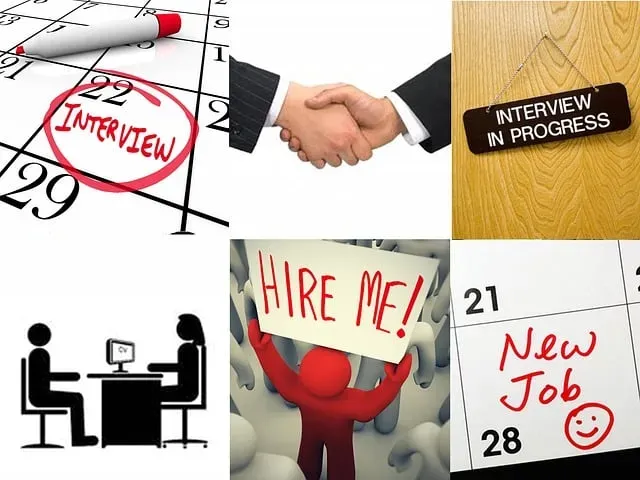
Have A Gap In Your Employment History? It’s Not The End Of The World..
Within this crafty little piece, you will find several fantastic tips on how to confidently answer to prospective employers and ensure that no matter the reason for any cavities in your career’s backdrop, there is a clear-cut method to cinch your interviews so your next position is all but in the bag.
So you have a gap in your employment history. Maybe you have more than one. Maybe these gaps lasted longer than you intended due to circumstances which were beyond your control. There’s no way to hide it when submitting an application, so why not embrace the intermission and sell it right alongside your education and experience?
With construction, engineering and environmental positions being in such high demand, when you sit down to interview with the person who potentially holds your future in his or her hands, it’s critical that you have arrived prepared to discuss the blemishes in your employment history. Just how do you prepare for such a discussion, though?
If you are fortunate enough to have a few days or more before the big day, spend some time geared toward recalling what you actually did throughout the entirety of the gap(s). Write down everything that comes to mind. Did you go back to school or take a specialized course somewhere? Did you start a family? Did you spend time independently educating yourself or performing research of any kind? Were you doing anything that could be considered freelance?
When you feel comfortable that your reflection is as complete as possible, take a look at what you’ve scrawled in front of you. Read it back to yourself aloud. Chances are reasonable that you have one or more of the above-mentioned activities in your past, and each one of them is a perfectly acceptable explanation for any lapses in employment.
Let’s surmise for a moment, however, that you simply needed a break from the grind for a while. As an engineer, your job is mentally draining and demanding of your time and as someone in construction, your job is physically demanding and maybe the bureaucratic policies within your company have you mentally drained. The not-so-technical term for time off work in this instance is “burnout”.
With increased pressure from activists and the general health community, it is now more acceptable than ever to take time off for mental health. Everyone needs to regroup occasionally, and the time it takes to do so will vary from person to person. Keep in mind, however, that a year off for mental maintenance may raise a few eyebrows. It’s best to keep this explanation for the shorter gaps whenever you can.
During an important interview, how do you go about portraying to your prospect that these little chasms are nothing about which they should worry? The answer is simple, yet perhaps difficult for some to execute. Confidence is your best friend during these fragile moments, and a well-rehearsed monologue for each questionable rift are the proverbial golden tickets for being able to walk out of your meeting with a head held high.
What if you lack confidence, or are simply the sort of person who freezes up during interviews? A couple of easy exercises done solo or with a partner will help shake those nerves.
First, and perhaps most importantly, practice speaking while smiling. According to Forbes, smiling helps to stimulate your own sense of well-being, in turn boosting your confidence. If you aren’t comfortable exchanging role-play banter with a partner, use a mirror to help remind yourself to smile. Smiling should also never be forced, and a fake smile is noticeable. Remember the time you gave your wife a sweatshirt that you thought she’d really love, and when she saw it, the smile on her face made it obvious that she’d rather throw it in the fireplace than even wear it to bed? You’re not alone in being able to notice a pseudo-grin, so if you find yourself having trouble smiling while you speak, try picturing something in the back of your mind that would make you show some friendly teeth. And if that doesn’t work, the fact that you’ve been chosen to interview with this next company should, if nothing else, be enough to get you smiling.
Secondly, try to remember that if the reasons for the voids on your resume are due to decisions that you’ve made, you need to own them. While employers don’t necessarily jump for joy when they notice these things, most of them respect the courage it takes to display concise honesty about why you chose to not work for a while, and they’d rather hear about how you took that year off to go train touring through cheese country than a stumbling made-up excuse that’s as easy to see through as expensive crystal. According to Career Builder, no matter how you utilized your time off, employers want to know that you’ve used it as a period of self-reflection. As elegantly and matter-of-factly as possible, detail how you made this time work for you rather than against you and include anything that you have learned about yourself and the industry while you were out of the game.
The list you made earlier which encompasses all the things you did while off work should now help you compose the monologues we talked about just a few moments ago. You may not use it as such, but think of this as a sort of sales proposal, and the product you’re selling is yourself. Include mentions of knowledge or experience you gained during the gap and explain how, through you, it will directly benefit the company.
Rehearse this to the best of your ability so you can speak completely off-book when addressing your prospect’s concerns regarding time between jobs. It’s almost a guarantee that your interviewer will have a copy of your resume in front of them while you converse; perhaps marked up in choice places with noticeable red ink to assist them in remembering what to ask about. It’s also dire that you are certain that you haven’t been dishonest by omission on your resume. As stated earlier, if you have gaps, you need to own them, and that means not conveniently forgetting to include the dates you served at each of the jobs on your resume.
Whether to include months and years or simply the years through which you worked with a particular company is up for debate, but according to Jim Giammatteo on LinkedIn, you should never leave the months out of your resume because lies simply have no place on a resume, and it’s easy to get caught if you fudge something such as dates. “Every gatekeeper and every headhunter I know gets suspicious when they see only years listed on a resume,” Jim says.
For the best resume formatting tips and great advice on how to make sure you’re doing everything you can to dazzle your prospects, along with anything you need to know about properly addressing any questionable entries on your resume, get in touch with Webuild Resumes. We’ll help build your resume, your confidence and your future.
Michael DeSafey is a leading executive recruiter for professionals in the construction, engineering and environmental industries. He is currently the President of Webuild Staffing www.webuildstaffing.com . To learn more about Michael or to follow his blog please visit www.michaeldesafey.com
Spark The Passion In Your Work – How To Find What You Really Love To Do…
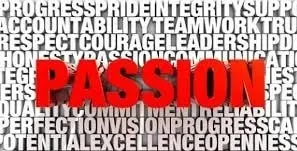
Spark The Passion In Your Work – How To Find What You Really Love To Do…
As a team leader or business owner in the construction, engineering or environmental industries, helping your employees find passion in what they do is essential for optimal workforce results.
People spend a large portion of their life working, from scrambling to complete projects, managing timetables to networking at company events. Having said this, the endgame for their career should be fulfilling. But how do people find the “Why” in their careers and what they really love to do?
Follow What You Already Know
Many professionals find themselves at a dead-end in their career growth. They often struggle to find a way out of the hole and ironically dig themselves a deeper psychological void. Overcoming this challenge is much simpler than you think. There is no need for advisers or shrinks; you just need to focus on yourself. You know yourself better than anyone else.
Ask yourself what you think about every day. What activities do you enjoy doing? What areas of study is your mind pervasively cooking up ideas about? No matter how random it is, from yoga to miniature airplanes, this could be your real passion, buried deep inside your consciousness and distorted by social influences and materialistic desires.
Listen To Your Body
People often hear and listen to the voices around them, such as their family members, friends, and colleagues, urging them to pursue safer career positions like project management, engineering or finance. Try to feel your way towards finding your real passion. Your gut will react in a certain way when triggered by a course of action. The question is – is this triggered feeling a positive or negative one? This is a powerful hint to what your next decisions should be.
Being consistently aware of how your body is feeling is important, irrespective if you’re a construction manager, engineer and environmental scientist. The most crucial part of awareness is being able to notice how different scenarios affect you emotionally, without laying judgment or censorship to oneself.
Self Reflection
Thinking before making a change; before pursuing any project or task, stop and check both your mind and body to see if what you are planning to do complements your desires. Just because tech jobs are the hottest field today, it doesn’t mean you should change your career path and get a job in Silicon Valley. If you do, you’ll find yourself regretting the decision decades from now.
People who’ve found happiness share similar qualities, one of which is they were able to figure out what was most important to them prior making a decision that will inevitably affect their life. Avoid chasing the fields that bear the most generous yearly salaries and bonuses like construction management or engineering. Instead, be driven by what you are genuinely passionate about. If you love working outside pursue a position in the environmental industries, biology, or zoology.
Bear in mind that this is not something that comes once in your life. Expect changes in your career path and the direction you wish to pursue. Regularly perform self-evaluations to allow your inner thoughts to express themselves and show you what you really want.
Michael DeSafey is a leading executive recruiter for professionals in the construction, engineering and environmental industries. He is currently the President of Webuild Staffing www.webuildstaffing.com . To learn more about Michael or to follow his Blog please visit www.michaeldesafey.com
6 Questions to Ask Yourself To Increase Your Career Success..

6 Questions to Ask Yourself To Increase Your Career Success..
When people reflect on their careers, activities at work and what they can do to increase the likelihood of success, they might find that thinking rarely leads to doing. Perhaps if they asked themselves questions that lead to active change rather than passive questions, their focus would change and they could affect the change they are dreaming about for their careers.
Although companies regularly spend money to train their employees, the result is often that they stifle innovation instead of encouraging employee engagement. Companies need to approach the engagement of their employees in a new way. Survey results from organizations around the world indicate that companies use only passive questions to assess conditions. Passive questions illustrate static conditions, and might sound like, “Are your goals clear?” People who are asked questions framed in this way often think about what’s happening to them instead of what they’re doing. They focus on their circumstances and not on their own success. For example, an environmental specialist might focus on following a standard process instead of proposing a customized process that works better.
Answers to passive questions are almost always environmental. An employee who answers that his or her goals are unclear will often blame the lack of clarity on outside circumstances. Excuses might range from “The project direction is unclear” to “My manager hasn’t specified goals for me.” When posed with a question similar to this, many employees look outward for blame instead of taking personal responsibility for setting their own goals.
An hourly laborer might dream of being a project lead or site foreman. Asking him the right questions—in the right way—might help him realize his ambitions.
Asking passive questions isn’t wrong, though it often causes repercussions that aren’t always positive. Asking solely passive questions can provide an easy excuse for employees to avoid being accountable and taking responsibility as individuals. If employees aren’t prompted to see themselves as taking the lead role in their own development, many will pass that responsibility on to someone—anyone—else.
How can this unproductive fate be avoided?
Simply put, the opposite of passive questions are active questions. Revisiting an earlier example question as it might apply to an engineer, “Are your goals clear?” could be improved and made active. An alternative might be “Did you apply yourself as best you can to setting specific, measurable goals for yourself?” The original version of this question really asks about the employee’s mindset; the alternative enables the employee to assess and argue for a specific plan. The engineer might realize an opportunity to plan a project differently or lead a new project instead of simply acknowledging progress in someone else’s plan.
Asking the following six questions will allow you to become are more successful version of yourself.
- Am I taking steps to increase my happiness?
- Am I taking steps to find meaning?
- Am I taking steps to be engaged?
- Am I taking steps to build positive relationships?
- Am I taking steps to set specific, measurable goals for myself?
- Am I taking steps closer to achieving my goals?
Michael DeSafey is a leading executive recruiter for professionals in the construction, engineering and environmental industries. He is currently the President of Webuild Staffing (www.webuildstaffing.com) . To learn more about Michael or Follow his Blog please visit www.michaeldesafey.com
Adapting to the Growing Influence of the X/Y Generations on the Workplace

Adapting to the Growing Influence of the X/Y Generations on the Workplace
Adapting to the Growing Influence of the X/Y Generations on the Workplace..
Not only do people from Generation X and Generation Y make up a large portion of the workplace in the construction, engineering and environmental, but they are also the individuals coming into power. As a result, the workplace environment has to shift to meet these growing demands and to keep employees happy on the job.
Creating a Balance
Some people assume that the members of Generation X and Y are lazy. They think that these individuals would rather spend most of their time relaxing. However, that’s not the case. People are balancing responsibilities in ways that they didn’t in the past. For example, in many households, both of the parents work. As a result, one of the parents needs to have time to arrange drop-offs and pick-ups for school and activities. That doesn’t necessarily mean that Generation X and Y members want to work less, but they want to have flexible schedules. Working at home, for example, is growing increasingly more popular. People can schedule construction projects, create outreach programs for environmental campaigns and review engineering material at a time suitable for them.
Establishing Relationships with Managers
Individuals in these generations still look toward their managers as leaders, but they also see them as partners. While a level of respect and authority is imperative to maintaining structure in the workplace, employees want to feel as though they are working in tandem with their managers. For example, at a construction company, people want to feel as though they are working with their managers to create a new entity. They don’t want to feel frightened of them. Establishing relationships with managers is important. Some people have friendly conversations, and others invite their managers to social events.
Developing Throughout
Generation X and Yers are quite focused on the skills they are developing. They may not have a long-term career goal or a particular position that they are trying to obtain by the time they reach the end of their careers. Instead, they have been trained to focus on skills, and their ultimate goals likely relate more to those skills than to a specific position. For example, someone may not necessarily want to own a company, but he or she may wish to develop and exert strong leadership skills.
Focusing on Technology
In a world where technology has such a heavy presence, failure to pay attention to how that affects the workforce is a tremendous problem. Part of that has to do with work-at-home opportunities. Since people in these generations often have a variety of obligations outside of work, they are happy to participate in opportunities that allow them to complete some of their work at home. They are also savvy at using new technology in the workplace. They can help individuals who are not as skilled in this area. These generations also are adept at using social media. For instance, they could create a page that promotes environmental causes and speaks out to thousands of people in a moment. Furthermore, companies need to change how they advertise jobs to some degree. Many individuals who fall into one of these generations look for jobs on the internet, so the companies need to make sure their posts are available.
As new generations come into power, the world has to respond to match up with those changes. Right now, the workplace is looking for methods that will better speak to both the needs and the strengths of the people who are in Generation X and Y.
Michael DeSafey is a leading executive recruiter for professionals in the construction, engineering and environmental industries. He is currently the President of Webuild Staffing www.webuildstaffing.com . To learn more about Michael or to follow his Blog please visit www.michaeldesafey.com
1% Makes All the Difference..

1% Makes All the Difference..
1% Makes All the Difference…
For even the most well-qualified job seekers, the search for a new job can be time-consuming and exhausting. After all, there are numerous qualified candidates that you must compete against in the construction, engineering and environmental industries. More than that, it can be emotionally exhausting, and you likely will face many closed doors and missed opportunities before you finally find a job in your field.
Many job seekers feel frustrated and let down when they do not see a positive result from their efforts, and others may simply settle with the fact that they put forth some effort to find a job today. When it comes to looking for a job in a competitive industry such as this, a different approach is needed
Those who follow the one-percent rule and put forth a little extra effort may ultimately enjoy better results from their efforts.
How the One-Percent Rule Relates to Your Job Search
The one-percent rule generally states that you can give that extra little bit of effort, or you can settle for less than you could possibly be doing. Many job seekers will settle for one-percent less when searching for a job. For example, they may not customize their resume and cover letter so that they are tailored specifically for the job they are applying for. They may state that they put in a full day’s work looking for new job openings, so they may not continue to look for a job in the evening. Perhaps they will skip an important networking event or job fair because they are tired from looking at job listings all day. However, this extra bit of effort that you exert may be the effort that makes all the difference in helping you to land a job days, weeks or even months sooner than you otherwise would.
Applying the Rule to Your Job Interviews
Likewise, the one-percent rule can be applied to your job interviews, and this applies to whether you are applying for a construction foreman position, a structural engineering desk job or any other position. Will you review interview questions and ask a friend to help you with a mock interview scenario? During the interview, will you act positive and excited about the job, or will you act like you have already been on a dozen interviews and are disillusioned with the job seeking process? After the interview is over, will you wait for the phone to ring, or will you send an email to the interviewer to thank him or her for their time and to express your sincere interest in the job after learning more about it at the interview? There are many small things that you can do that can go a long way toward helping you to differentiate yourself from other job seekers who you are competing with, and it is this extra little effort on your part that ultimately may help you to land the job in you want in your field.
Job seeking can certainly be frustrating, and this may even more true when you are looking for a position in a competitive industry like engineering, construction or other related industries. It is easy to lose motivation and to get discouraged. You will likely face many closed doors before you find that one door that is open and ready for you to walk through it. Each day of your job search, ask yourself what you can do to make that extra one-percent of difference, and you may find that this effort will make all the difference.
Michael DeSafey is a leading executive recruiter for professionals in the construction, engineering and environmental industries. He is currently the President of Webuild Staffing www.webuildstaffing.com . To learn more about Michael or to follow his Blog please visit www.michaeldesafey.com
New Graduate? Tips For Interviewing For Your First Engineering Job

New Graduate? Tips For Interviewing For Your First Engineering Job
New Graduate? Tips For Interviewing For Your First Engineering Job..
If you are interviewing for a position in the engineering field, it is vital that you stand out from other candidates in order to obtain a position. While your degree and experiences may be sufficient to secure meeting with an HR representative at the company in question, you are likely to have plenty of competition.
When you have obtained a call back or possibly even before, learn more about the company. Go to their website and discover the principles on which it was founded, by whom, and when. See if you are able to find a few interesting facts that will show why you are interested in the company. For example, perhaps the business was involved in a project for which you have a great deal of professional respect.
Make certain that your attire is appropriate for the interview. Because it is a professional position, going in dressed for “casual Friday” is inappropriate. Have your clothing ready beforehand and take an honest assessment in the mirror of your appearance. Hair, including facial, nails and the rest of you should be well groomed. Polish your shoes. The few extra minutes that this requires may provide you an edge in making a good first impression.
Additionally, be prepared for the types of questions that are likely to be presented to you during the interview. One example is they may inquire about what types of special skills or knowledge you may have obtained from internships or part-time employment from previous employment. As you are recently graduated from school, with little work experience in the field, offer an example related to your scholastic experience and how you were able to assist a classmate.
Alternatively, they may ask about what you have learned from a previous mistake. Attempting to gloss over information or pretend as though you have never made an error will make you appear disingenuous, which could cost you the second interview, or the position altogether. However, if you can briefly summarize what you did wrong while expressing what you learned, you will show honesty and the ability to learn two skills that your interviewer will be searching for.
Proper preparation is essential to having a successful interview. If you know about the company and present yourself professionally, you are off to an excellent start. Be prepared to field a variety of questions regarding your experience and educational history. Contemplate the work you have completed in the past prior to the interview. This will help you in delivering honest answers that exhibit your skills in the engineering field.
Michael DeSafey is a leading executive recruiter for professionals in the construction, engineering and environmental industries. He is currently the President of Webuild Staffing www.webuildstaffing.com . To learn more about Michael or to follow his Blog please visit www.michaeldesafey.com
5 Ways to Improve Your Job Search When Searching For Construction, Engineering And Environmental Jobs..

5 Ways to Improve Your Job Search When Searching For Construction, Engineering And Environmental Jobs..
5 Ways To Improve Your Job Search When Searching For Construction, Engineering And Environmental Jobs..
Unemployed in the construction, engineering or environmental industry? Develop an edge over the competition by using one of these five ways to improve your job search. They enhance your ability to find up-to-date job listings and get you employed quickly. Just:
1. Tweet your followers.
You’re probably constantly on Twitter anyway. So, change your tune and talk business. Let your followers know you’re looking for work and ask for a few leads. You may get the kind of response that gives you a break. (Special Note: Clean up any questionable material on your Twitter account in order to make a better impression.
2. Join a Linkedln group.
Linkedln is a social network geared toward career-minded individuals. In your profile, you can list your skills, references and other note-worthy info that a human resources representative might find interesting. You also have lots of opportunities to join groups with like-minded individuals in your profession. These individuals will keep you current on industry standards and open positions in their company.
3. Contact a staffing agency.
Don’t underestimate the power of a good staffing agency. This method to improve your job search offers a second set of hands in your quest for employment. The staffing agency only gets paid when you do. As a result, the assigned representative is highly invested in getting you work. (HINT: Be sure to check in with the staffing agency on a weekly basis to remain highly visible to them.)
4. Post resumes on multiple sites.
Monster.com isn’t the only game in town. There are other places that companies rely on for finding new employees. In the Forbes article The 10 Best Websites for Your Career the most popular ones were indeed, CareerBuilder, Beyond, Simplyhired, etc.. Check them out and post your resume on at least three of them.
5. Search daily, at least four hours.
Yes, trying to find a new job is stressful. At times, you feel overwhelmed, you struggle to find new job listings or just get discouraged overall. Yet, you have to go through this process in order to gain employment. Therefore, split your day in half like an eight hour shift – the first half collecting data on potential positions – the second half applying for them.
These five ways to improve your job search increase your chances of being hired by a company. Be diligent and you will soon re-enter the work force.
Michael DeSafey is a leading executive recruiter for professionals in the construction, engineering and environmental industries. He is currently the President of Webuild Staffing www.webuildstaffing.com . To learn more about Michael or to follow his Blog please visit www.michaeldesafey.com
5 Ways to Become A Better Leader In The Construction And Engineering Industry

5 Ways to Become A Better Leader In The Construction And Engineering Industry
5 Ways to Become A Better Leader In The Construction And Engineering Industries..
The famous “leader vs. boss” stereotype paints a powerful image of what a true leader really is: someone who can stand in the front of team while also working beside them. This being said, being a good leader is about being a team player as much as being the main decision-maker and source of guidance. If you are interested in becoming a better leader yourself, here are five things to keep in mind when working in the Construction and Engineering Industries.
1. Remember Respect Is Earned
A good leader leads by example. You need to show your team that you are worthy of your position, and you aren’t just willing to lead your team but to also work next to them. Talent, after all, thrives when it is given the right resources and leadership to flourish. Once you earn your team’s respect, they will be loyal to you and be empowered to bring their best work to the table.
2. Be Open To Learning From Your Team
Just because you’re leading your team doesn’t make you an expert at everything. This being said, it’s always a good idea to get input from members of your team and learn from them. Asking them to share their knowledge can lead to more frequent collaboration and exchanges of ideas. Moreover, you’ll learn from their expertise, which can help you be more informed about ongoing projects and tasks.
3. Avoid Micromanaging And Let People Grow
A leader’s role is to empower their team, not to control them. This being said, you want to give your team room to grow, which means micromanaging is out of the picture. Trust that they will do their job well and establish a collaborative feedback system so that they know what to improve on and the goals/responsibilities for project and there job.
4. Encourage Healthy Disagreements
If everyone was always agreeing on everything, it’d be difficult to figure out what your team is doing right or wrong. This is why it’s a good idea to encourage your team to speak up if they disagree with you.
5. Have A Good Sense Of Yourself
Being a good leader starts with knowing who you are and being truly self-aware. You’ll know your strengths and weaknesses, which will make it easier for you to know when to step in and step back.
Michael DeSafey is a leading executive recruiter for professionals in the construction, engineering and environmental industries. He is currently the President of Webuild Staffing www.webuildstaffing.com . To learn more about Michael or to follow his Blog please visit www.michaeldesafey.com
2 Benefits Of Using A Career Coach To Advance Your Career

2 Benefits Of Using A Career Coach To Advance Your Career
2 Benefits Of Using A Career Coach To Advance Your Career
Having a professional career coach may help you gain new perspectives on your career and boost your confidence. What’s more, a career coach may result in improved productivity and satisfaction with life and work.
As executive recruiter and career coach with over 20 years of experience, I highly recommend career coaching in the early years of college or immediately post-college, though career coaching can be beneficial for any stage of a person’s career. Likewise, career coach and former CNN correspondent Gina London says anyone who is struggling from some aspect of their career can benefit from having a career coach’s guide.
This being said, here are 2 benefits you get from having a career coach.
1. An Objective Perspective On Your Career
It’s helpful to have friends and family help you with your career, but because they’ve known you for a good amount of your lifetime, their advice can be slightly subjective. With a career coach, you’ll be getting a completely objective perspective. Career coaching, after all, involves in-depth career research and complex psychological theory – both of which require objectivity.
Case in point, by giving my perspective I helped one of my clients advance in their job search very rapidly by breaking down barriers they did not know existed:
A recent client couldn’t break the pattern of just submitting resumes to online job postings. After some discussion, he revealed that, because his parents both had very dominant personalities, it was his tendency to withdraw a little and hold back on his daily actions. He struggled with being assertive, being reluctant to ask for help and discouraged when faced with the prospect of being rejected. He had to be encouraged to develop the confidence that is needed for career networking. He had the skills and experience but lacked the motivation to expand his horizons and broaden his career. By encouraging him to network, attend industry association meetings, expand existing relationships he obtained a job offer, exceeding his expectations within 2 weeks.
2. Measurable Progress
A career coach doesn’t just listen to your concerns. Rather, they give you tools, tips, and techniques to help you attain measurable results. This is what makes a career coach different from any other type of mentor: they don’t just give you advice based on their own life experiences they discuss with you how to grow your career, provide you tools to expand your horizons and motivate you to excel in your career. Tracking results at each stage.
If you would like to learn more about the benefits of career coaching for your career, feel free to visit our website at www.webuildstaffing.com
Michael DeSafey is a leading executive recruiter for professionals in the construction, engineering and environmental industries. He is currently the President of Webuild Staffing www.webuildstaffing.com . To learn more about Michael or to follow his Blog please visit www.michaeldesafey.com
How LinkedIn Can Boost Your Professional Brand..
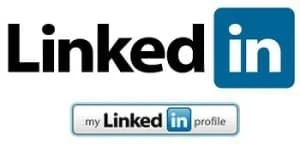
How LinkedIn Can Boost Your Professional Brand..
Harness The Power Of LinkedIn And Boost Your Professional Brand
With over 259 million members on LinkedIn, there is no better platform to tell your professional story on than LinkedIn. LinkedIn is a great place to show others who you are, connect with them, and keep them updated on your career and professional life.
Using LinkedIn to boost your professional brand can help you stay in the minds of others when they are looking for people like you to do business with. This is because users with more complete profiles are ranked more highly in LinkedIn search results and have higher visibility. In addition, using keywords in your profile and joining LinkedIn groups will also affect your search ranking.
Thus, to get started with revamping your LinkedIn profile, you will want to see how strong your profile is – which you can easily do by checking your LinkedIn profession strength notification. LinkedIn suggests you have a photo, detailed descriptions of your professional experiences, a summary, at least five skills, 50 connections, and your postal code to ensure “profile completeness”.
Now you’ll want to make sure your headline has keywords relevant to your skills and experiences. What would people be searching for if they want to find a professional like you? Think of that keyword and make it a part of your headline. Repeating strategic keywords throughout your profile will cause you to rank higher in search results. You can check your work by searching for specific keywords in your profile to see where you rank in the results.
Recommendations and endorsement are also a great way to show recruiters and other people in your industry that you’ve made good impressions in your professional circle. This being said, it’s a good idea to reach out to co-workers and colleagues and ask for a recommendations. Publishing documents or project literature will also help increase your overall professional appearances.
If you are comfortable with writing, another way to boost your professional brand with LinkedIn is to write content. Have you been involved in a professional situation that you learned a lot from? Do you have insights in your industry that have not been written about before? If so, share these experiences with your LinkedIn peers. Post updates, links, etc, this is a great way to engage people, demonstrate your professional aptitude and start conversations.
Should you need some professional assistance to develop your LinkedIn Professional Profile, there are many great articles online, as well as, many consulting services available that are affordable and get you results effectively within the LinkedIn Platform.
Michael DeSafey is a leading executive recruiter for professionals in the construction, engineering and environmental industries. He is currently the President of Webuild Staffing www.webuildstaffing.com . To learn more about Michael or to follow his Blog please visit www.michaeldesafey.com
5 Principals Of Realistic Goal Setting For Professionals

5 Principals Of Realistic Goal Setting For Professionals
5 Principals Of Realistic Goal Setting For Professionals..
Setting goals is one of the most important steps to success in life, in personal as well as professional aspects. For those who want to succeed in their careers of choice it’s important to have a game plan, a blueprint, a road map for getting from where you are now to where you want to be some day.
5 Principals Of Realistic Goal Setting For Professionals
#5: Set Specific Goals
Do you know the reason most people break their New Year’s Resolution to get in shape? It’s because they set a general goal that can feel impossible. The same is true of your career. If you set the goal of “get more business” or “make more money,” then you don’t really know what you’re trying to do except in broad strokes. Specific goals like “get promoted to a project manager” or “open my own consulting business” are more specific, and because they’re more specific they’re also easier to achieve.
#4: Set Goals With Measurable Progress
Once you have a specific goal you need to lay out the steps you need to take to get there. Say you wanted to become a environmental consultant. You would lay out the concrete steps of bachelor’s degree, master’s degree, on the job training, etc. so that you can see how close to your goal you are. Having a concrete goal is good, but knowing how to get there is also important.
#3: Set Goals You Can Achieve
It’s important to set career goals you can achieve. To compare your career to fitness, going from someone who’s totally out of shape to someone who can easily run marathons is a big goal. Break your bigger, over-arching goal into smaller goals that are easier to achieve and you’ll make more progress without feeling discouraged.
#2: Be Relevant and Realistic
It’s important for you to know yourself and your capabilities when it comes to your career. For instance, you might want to be a professional athlete. In some cases that’s a perfectly viable goal. In others though, such as when someone has been born with a frail health or with birth defects that make it hard to perform physical activities, it simply isn’t realistic. Your career is like that; hard work and training is important, but you need to make sure there’s a demand for your skills or product.
#1: Deadlines
A goal without a deadline is a dream. If you really want to achieve something then figure out how long it will take, and set a date to have it done by. Even if the date doesn’t affect anyone other than you it has to be set in order to be real.
These five steps represent the S.M.A.R.T. tenets of goal setting. Check them out in full detail here. That make realistic goal setting and achievement possible.
Michael DeSafey is a leading executive recruiter for professionals in the construction, engineering and environmental industries. He is currently the President of Webuild Staffing www.webuildstaffing.com . To learn more about Michael or to follow his Blog please visit www.michaeldesafey.com
Branding? Have you created a professional brand that matches your career objectives

Branding For The Professional Career
Branding? Have you created a professional brand that matches your career objectives
Branding? Have you created a professional brand that matches your career objectives.
We all know about the branding tactics large companies use every day to gain loyal customers, but have you ever stopped to consider the importance of personal branding for yourself during your job search journey?
Personal branding is the latest buzzword being used by career coaches as a marketing tool for jobseekers. It is quite similar to the “elevator speech” that we have all been taught to have prepared; a quick speech for someone that tells them who you are, what you do and what your goals are. A personal brand takes this concept, but goes more in
depth and is more encompassing of the concept. Personal branding puts more of the emphasis of marketing your identity to others rather than just quickly “selling” yourself in a brief encounter.
Personal branding allows you to control how others see you and this control allows you to determine your own path and goal setting. Personal branding can also be compared to your own personal mission statement in that it is a clear statement of who you are, who you want to be and how you are planning to obtain it. Not only will it keep you on track for the results you have set for yourself, but it also allows you to ensure how others view you and your career goals.
When creating your personal brand have a particular goal in mind (job, career, company) and be mindful of their image, as well as, that which you have for yourself. Qualities that may be considered a strong personal brand with one company or career type may not be compatible with another and may need to modified and customized appropriately during a job search – always make sure it is relative and compatible.
When creating your personal brand carefully consider what words describe you, what your achievements have been and how you want others to view and describe you. This is also an opportunity to really look at yourself and make sure you are the individual you strive to be. Do you have any expert qualities? Are you consistent with who you want to represent? Do others view you the same way you view yourself? Before committing to a personal brand, you may need to take a hard look at some of these traits and make any modifications necessary to yourself to fit the brand you visualize for yourself.
Once you have decided how you want to brand yourself make sure everything that you do fits that brand. Your actions, projects, goals, clothing, personality and more must fit into the brand you have designed for yourself. For a complete branding of yourself make sure all areas of your life run parallel and reflect the vision. With our modern technology today this means not just your work life, but also includes your personal life, and your social media life. With that being said, it is imperative that you be present and up to date on social medial (Facebook, twitter and LinkedIn at a minimum), but your postings must match your personal branding. This means tasteful and interesting posts online; reviewing your account settings to avoid any involuntary photo tagging or postings being viewed by potential employers that may not be consistent with our brand image.
Employers are using social media more and more in their search for new employees, so much so, in fact, that your social media profile can be the difference between getting an interview or being overlooked during the early stages of the interview process.
Taking the time to create a brand image and consistently living up to those standards you set for yourself will allow you to advance your career within in the directions you desire, with exceptional career opportunities.
Michael DeSafey is a leading executive recruiter for professionals in the construction, engineering and environmental industries. He is currently the President of Webuild Staffing (www.webuildstaffing.com). To learn more about Michael or to follow his Blog please visit www.michaeldesafey.com
Need A Professional Resume? Five Key Reasons to Use a Professional Resume Writer

Resume Writing For Construction, Engineering And Environmental Professionals
Need A Professional Resume? Five Key Reasons to Use a Professional Resume Writer
As more and more professionals in the Construction, Engineering and Environmental industries are looking to advance their careers. Many are turning to professional Resume Writers for assistance. However, there are still many people unfamiliar with the benefits of using a Professional Resume Writer in today’s job environment.
When it comes to Engineering and the related multi-disciplinary industries, it is particularly crucial to use a resume writer knowledgeable about the industry you work in; One that understands your job responsibilities, career path and common industry terminology that is used daily in your profession. “Generalist” writers may be familiar with the resume outlines of many industries, but they lack that crucial knowledge that will allow them the craft a resume that will allow you to stand out to an employer. These writers could make basic mistakes on your resume that reflect poorly on you as a professional.
So let’s look at some of the advantages of using a writer skilled in the construction, engineering and environmental industries:
1. Compelling Achievement Narratives.
Modern, effective resume writing depends not only on listing “duties,” but on the abilities to showcase the outstanding achievements that an individual delivered in the past. Achievement narratives are fundamental in adequately summarizing the challenges that a candidate encountered, the actions taken and the results achieved on projects or in a career position. Each step of this style of narrative requires deep insight into the construction, engineering and environmental industry and its norms.
2. Ability to Articulate Your Unique Value Proposition
Along with a narrative a professional resume writer that is highly experienced within the construction, engineering and environmental industries will have the abilities to articulate you unique value to an employer. Everyone who has an Engineering or Environmental background brings specific skills to the workplace. It is important that a Professional Resume Writer be able to differentiate you from the competition by weaving your individual achievements into a complete picture — demonstrating the unique ways you approach and resolve difficult projects, engineering challenges and showcasing those results throughout your resume.
3. Use of Correct and Appropriate Industry Terminology
Large Construction and project management firms tend to use “Applicant Tracking Software” to streamline the process of resume evaluation. This software scores each resume received by comparing it to an internal database of key terms and certifications. That means your skills and credentials must always be communicated using the correct industry terminology. Focusing on projects, titles, keywords, achievements and certifications will allow you to rank higher within the applicant tracking software search criteria’s; so an employer with take notice.
4. Refined Understanding of the Most Important Metrics in Your Industry
Most business professionals are generally concerned with measuring money saved and revenue delivered during your career. While these are valuable barometers of success, In the construction, engineering and environmental industries they don’t necessarily speak to the main technical concerns in your particular industry. Civil, Environmental engineers for instance are especially apt to use metrics that may not be understood immediately by the general public; this highly technical engineering information must be communicated clearly to non-technical human resource and hiring decision-makers. Resume writers who specialize in writing resumes for professionals in the construction, engineering and environmental industries have a firm grasp on how to translate and communicate this technical, engineering knowledge to the general, non-technical public audience.
5. Enhanced Alignment Between Your Candidacy and the Industry’s Direction
No industry is static. Evolution takes place every day. A good resume writer must be familiar with industry trends, projects, publications, and research to demonstrate how your skills match up with emerging needs of employers. This allows the resume writer to be able to frame the whole progression of your career to stay relevant to the emerging marketplace. By developing effective, multi-use cover letters, executive summaries and project lists.
By using a resume writer that specializes in the construction, engineering and environmental industry will greatly enhance your career prospects and accelerate the process of getting interviews. Even if you don’t use the documents the writer produces, the basic discussion of your career with a third party can help you uncover ways that you’ve contributed value to your former employers without even knowing it.
With that said, no one should engage a resume writer thinking his or her work might not be suitable. To save money and build what could be a fruitful professional relationship, you should ensure that a prospective writer has keen insight into the context of your work. For these reasons and more, construction, engineering and environmental industry-focused Resume Writing Services are vital.
Michael DeSafey is a leading executive recruiter for professionals in the construction, engineering and environmental industries. He is currently the President of Webuild Staffing (www.webuildstaffing.com ). To learn more about Michael or Follow his Blog please visit www.michaeldesafey.com .
To utilize Webuild’s Resume Writing Services, Please view the website at www.webuildresumes.com
First Impressions Count!! So Make The Right One…
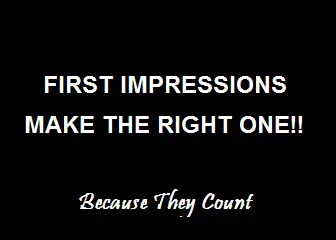
First Impressions Count!! So Make The Right One…
Making a great first impression is essential to having a successful interview. Throughout history many influential leaders have stressed the importance of making a great first impression. Most notably the Greeks thought and wrote extensively about the effects of one person’s personality on another. In today’s business environment these concepts are still very relevant when making a first impression.
Ones Ethos as the Greeks defined it, can be referred to as their ethics. Who you are as a person and how you are perceived by others.
The latter being the more influential in the business world. Who you are perceived to be will greatly determine how much influence you have over another person in business and increase your level of credibility in public. In your personal life though the opposite is true; everything you do and/or do not do personally either adds to or decreases your level of credibility with the ones who know you best and are around you every day. Many of the worlds great leaders had great public success, but personally had troubled or little success in their personal affairs.
In public the first impression you make on others dictates how you will be perceived. The most obvious impression revolves from your appearance. When you first meet someone within 30 seconds or so that person will make a judgment about you based on your appearance and within 1 minute finalize an overall opinion about you based on your tone of voice, body language, etc.. Most notability in a hiring / interview setting most hiring managers will admit they make an assumption on a potential employee in less than a minute after meeting that person; that assumption is very hard to change during the interview if the interviewers mind is made up.
So what can you do to make that great first impression?
(1) While you cannot change your god given physical features, you have complete control over how you dress and present yourself to the world. As it may be a sad commentary on the business world that how you dress will greatly influence how you are perceived. Making a conscious effort to dress professionally and be groomed and clean cut when in a public will greatly influence people’s impression of you. Following fashion trends and/or utilizing accessories such as a brief case, ipad, etc.. all add to your overall image. If necessary, take a look in the mirror, get a few fashion magazines or hire a fashion consultant to help you; as your appearance is the number one influencer on the impression you make within that first 30 seconds.
(2) Your body Language is the next thing people perceive about you. Are you making eye contact? Talking in a strong confident manner? Smiling? Have correct posture? Present a pleasant personality? Your body language says a lot about who you are as a person and leader. So stand tall, make eye contact, speak clearly and slowly, use a moderate tone of voice and when making hand gestures do so purposefully and deliberately. Most importantly be confident.
(3) Know what you are talking about!! Once you have made it past the all-important 1 minute hurdle; you now need to show you know what you are talking about. This is where great business professionals shine. They know their stuff. So in an interview setting, you better be ready to show you are qualified, have the experience and understand the business of the company you are interviewing with. Have your resume with you, do you research on the company understand the position they are talking with you about.
Making a good first impression in the business world go’s a long way in having a successful career. The interview is the first step in building that career. So take the time to prepare and present the best version of you when interviewing.
Michael DeSafey is a leading executive recruiter for professionals in the construction, engineering and environmental industries. He is currently the President of Webuild Staffing (www.webuildstaffing.com). To learn more about Michael or Follow his Blog please visit www.michaeldesafey.com
